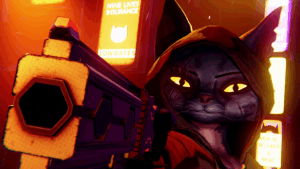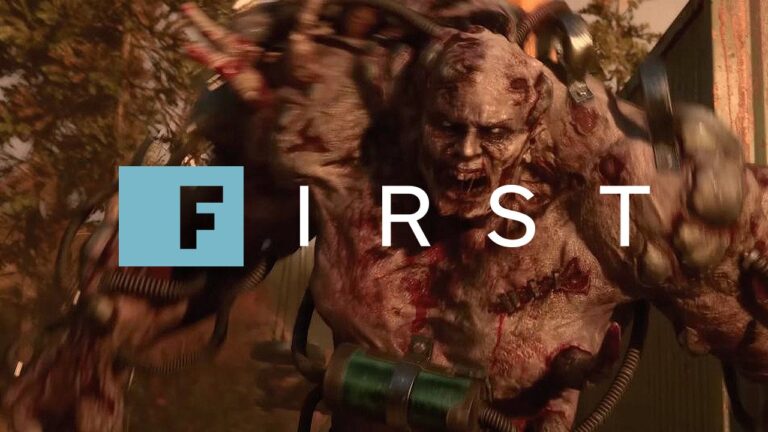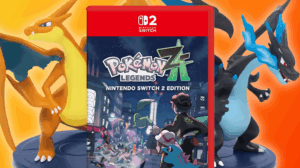Exploring the Absurd: How Future RPGs Celebrate Unconventional Character Choices
Imagine stepping into the shoes of Booker DeWitt from BioShock Infinite, arriving in the floating city of Columbia. The local authorities are desperate to identify the elusive False Prophet, but their efforts are hampered by years of propaganda fueling xenophobia and paranoia. When eyewitnesses describe him, their accounts are wildly inaccurate—ranging from a mixed-race dwarf to a Frenchman with a missing eye—highlighting how societal biases distort perception.
In one comical scene, a sketch artist attempts to create a facial composite based on overheard descriptions. The conversation quickly devolves into caricature: “He was taller… slimmer… his eyes were further apart… he looked Irish, with red, curly hair… and he was definitely an anarchist.” Such moments serve as clever commentary on societal prejudice, showing how narrow-minded beliefs can distort reality. This nuanced storytelling approach was vividly on display during this summer’s Xbox Showcase, where the highly anticipated game Clockwork Revolution was unveiled.
The Steampunk World of Clockwork Revolution
While BioShock Infinite drew inspiration from turn-of-the-century Victoriana and time-manipulation mechanics, Clockwork Revolution transports players into a gritty, industrial steampunk universe—albeit closer to the ground than the sky-high Columbia. Here, societal tensions have created a volatile environment, with conflicts played out using vintage firearms and magical temporal abilities. Imagine flicking your wrist to turn rubble into a sturdy wall for cover—an intuitive mechanic that echoes Irrational’s signature style.
In the opening scenes, an aristocrat fumes at a police station, describing a suspect with exaggerated detail: “Tall… slim… muscular… quick and agile… with a mustache… no, larger!” Unlike BioShock’s satire, this sequence emphasizes the game’s focus on the versatility of its character creation system. At its core, Clockwork Revolution is a role-playing game rooted in the traditions of classics like Wasteland, The Bard’s Tale, and Planescape: Torment.
Deep Character Customization and Narrative Impact
When beginning your adventure, you’ll choose your background—perhaps a gritty Gearsmith scavenging through ruins or a Bookwarden rescued from an orphanage by a wealthy scientist. The game offers traits with quirky names like Street Stalker or Steam Whisperer, along with attribute points that determine your resistance to chemicals or your conversational skills. Your choices in the past ripple into the future, dynamically shaping the environment and story around you—an exciting prospect for fans of reactive storytelling.
Humor and Flexibility in Role-Playing
The exaggerated tone of the game complements its RPG mechanics, allowing for a wide range of character decisions beyond traditional tropes. Unlike more serious titles, Clockwork Revolution encourages playful experimentation—whether it’s being a bumbling hero or a chaotic troublemaker. For example, you might decide to be a foolish character who causes chaos in a shop, leading to humorous and unpredictable outcomes. Such moments add freshness to the genre and highlight the game’s embrace of absurdity.
Comparisons with Other Next-Gen RPGs
Interestingly, Clockwork Revolution shares more in common with Obsidian’s The Outer Worlds 2 than with games like BioShock Infinite. Both titles emphasize player agency and world-reactivity, allowing you to craft a unique character background—whether you’re an escaped criminal, a fake hero, or a failed scientist. During the Xbox Showcase, developers explained that these games do not lock you into a specific archetype, granting freedom to experiment with identities like a Roustabout or a rogue agent.
The art style of both games features vivid, slightly garish color palettes and ornate designs that seem inspired by over-the-top aesthetics, adding a layer of humor and charm. These visual choices reinforce the games’ playful tone, making serious themes more approachable and fun.
Gameplay Quirks and Player Choice
Both titles offer amusing and unconventional gameplay mechanics. In The Outer Worlds 2, for instance, choosing the Kleptomaniac trait might cause your character to steal items unexpectedly, forcing you to deal with the consequences. Similarly, in Clockwork Revolution, players can opt for bizarre and humorous approaches—like using a musical sword that rewards you for striking enemies on beat or intentionally making foolish dialogue choices that escalate into chaos.
One memorable example from the trailer shows the protagonist ignoring a shopkeeper named Uncle Alfie to talk to his underling Errol, only for Errol to be violently assaulted by Alfie. The humor and unpredictability of these scenarios underline how the game’s tone encourages creative and over-the-top role-playing, breaking away from the often-serious narratives typical of the genre.
Balancing Absurdity and Player Agency
Of course, such zany options are entirely optional, giving players the freedom to embrace or avoid the silliness. For example, in The Outer Worlds 2, you can choose to wield a musical sword that deals bonus damage if you keep to the rhythm—an outlandish feature that adds flavor without forcing it on everyone. The flexibility ensures that each player can tailor their experience, whether they prefer a serious adventure or a wild, comedic romp.
Personally, I look forward to creating my own Cockney criminal in Clockwork Revolution. I imagine pumping points into social skills to manipulate NPCs, while a suspicious robot constable questions my motives: “Why do you think they’re so charismatic? Are you sure this wasn’t a jilted lover?” The possibilities for humorous and unpredictable scenarios are endless.
Final Thoughts
These upcoming RPGs demonstrate how embracing the absurd and offering expansive character customization can keep the genre fresh and engaging. By allowing players to make outlandish choices and explore quirky worlds, developers are pushing the boundaries of traditional storytelling, creating experiences that are both hilarious and deeply personalized.










